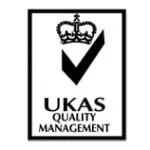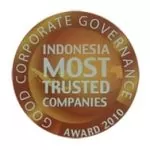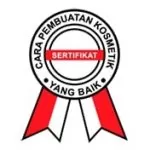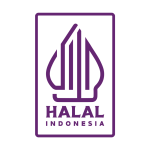As a country with a massive population, Indonesia offers promising business opportunities, particularly in the beauty sector. Rising income levels and a more progressive view of beauty drive businesses to continuously innovate and deliver products that meet consumer needs. However, with a population nearing 300 million, Indonesia brings socio-economic complexities that can significantly influence consumer purchasing decisions. Here, you will gain insights into the Indonesian consumer behavior, providing valuable knowledge to enhance your beauty business strategy.
Table of Contents
Toggle1. Focus on Ingredients and Benefits
Beauty literacy in Indonesia has become increasingly progressive, driven by greater access to information. Indonesian consumer behavior reflects a meticulous approach to examining the ingredients and functions of the products they use. This shift in mindset and body image has made consumers more selective about the products they choose.
Overly complex formulations may not appeal to them, as these are often perceived to carry a higher risk of irritation, especially when combined with other products. Additional certifications beyond Indonesian’s Food and Drug Authority (BPOM) and Halal can further motivate consumer purchases. Examples of impactful certifications or claims include ‘dermatology tested,’ ‘clinically proven,’ “cruelty-free” or ‘hypoallergenic.’
2. Highly Influenced by Social Media
Social media, particularly TikTok, has transformed from an entertainment platform into a powerful tool to explore products and brands. It has become a go-to resource for discovering beauty trends, learning about new technologies, and accessing honest, unbiased reviews. This shift highlights how digital platforms now shape Indonesian consumer behavior in a way traditional media cannot match.
Influencers significantly impact consumer preferences and choices as their content often feels more relatable and trustworthy than traditional advertising. Even when engaged in paid promotions (endorsements), influencers can build strong connections with their audiences, particularly when their values and personas align with those of the consumers. This authenticity gives influencer-generated content a significant edge, making it more engaging and impactful compared to conventional ads like billboards or TV commercials. Their ability to blend personal experience with product information makes them key players in influencing purchasing decisions.
Additionally, live streaming has gained popularity as a trusted medium for product reviews. According to annual data from IDN Media, 51% of Indonesian consumers prefer watching live product demonstrations or reviews before making a purchase. This growing trend underscores the pivotal role of social media in shaping consumer decisions and boosting engagement in the beauty industry.
3. Choosing E-Commerce Over Physical Stores
Following the COVID-19 pandemic, Indonesian consumer behavior has shifted, with a growing preference for shopping via e-commerce rather than physical stores. Health concerns and social distancing pushed consumers to rely more on online platforms to buy cosmetics. This transition has accelerated the growth of e-commerce in Indonesia, setting it up as the primary channel for purchasing essential products.
Beauty products, particularly skincare, emerged as the most purchased category within the Fast-Moving Consumer Goods (FMCG) sector online in 2023. Around 49% of respondents reported frequently buying beauty products through e-commerce platforms. This shift is largely motivated by the lower prices available online, discounts, and bundling offers.
The pandemic reshaped consumption patterns, encouraging Indonesian consumers to focus more on self-care and skincare routines. Spending more time at home allowed them to focus on maintaining healthy skin, resulting in a significant increase in demand for beauty products that has persisted even after the pandemic.
4. Choosing Authentic & Inclusive Branding
We all know that branding and marketing significantly influence a brand’s image and consumer purchasing decisions. Indonesian consumers are increasingly drawn to products with authentic, bold, and inclusive branding.
Of course, business is business. However, it’s crucial for brands not to overlook consumer values. Consumers don’t just want products that aim for maximum profit; they also seek relevance and a personal connection. What’s particularly interesting about the Indonesian market is that consumers are more captivated by storytelling and compelling copy than by visuals alone. Authentic storytelling—such as the journey behind the product, a brand’s commitment to consumer health, or community empowerment—is far more effective at capturing attention than relying solely on visuals or lofty claims.
In addition to offering engaging stories and emotional value, brands must also uphold consistent values. Even if a brand’s values don’t perfectly align with those of its consumers, persistence in communicating those values can still drive purchase intent. Indonesian consumers tend to appreciate narratives that reflect struggles, meaning, and social relevance.
Relevant socio-political issues, such as inclusivity, sustainability, and gender equality, also add significant value. Brands that demonstrate a commitment to diversity—whether through product offerings or advertising representation—hold a stronger appeal. Indonesian consumers want to support brands that create positive social and environmental impact. Authentic branding that centers on these values not only builds loyalty but also expands market share in this competitive landscape.
5. Preference for Local and Halal Products
Indonesian consumer behavior is now leaning toward local and halal products, as they are better suited to tropical skin needs and come at more affordable prices. This trend has been fueled by the growing presence of influencers who actively promote local brands through engaging and relatable reviews that help build consumer trust.
At the same time, consumers tend to be cautious about foreign products, especially those that have not received certification from the Indonesian Food and Drug Authority (BPOM). However, this skepticism does not apply to well-established global brands with a strong reputation in the international market.
Even so, younger consumers such as Gen Z, are open to trying new products from abroad, as long as they meet BPOM and halal requirements. Since 2021, BPOM has gradually implemented halal certification requirements for cosmetic products, which will take full effect by 2026. Halal cosmetics are not only intended for Muslim consumers but are also appealing to non-Muslims, as they are often perceived as safer due to their use of natural ingredients.
6. Price Sensitive but Value Quality
Indonesian beauty consumers have a unique approach to purchasing—they are price-conscious yet unwilling to compromise on quality. While they often seek affordable products, they prioritize those that offer real benefits, high-quality ingredients, and safety. Consumers are drawn to products that provide value for money, favoring local brands that can compete with international products in terms of formulation and effectiveness. Additionally, factors such as user reviews, BPOM certification, and halal claims play a crucial role in assuring them that an affordable product can also meet high standards of quality.
The purchasing behavior of Indonesian beauty consumers reflects a dynamic and evolving preference. They gravitate toward local and halal products due to their relevance, competitive pricing, and the trust built through local influencers. Despite being price-sensitive, quality remains a top priority, with consumers favoring products that deliver tangible benefits and comply with regulatory standards like BPOM and halal certification.
We Support Your Beauty Business
Indocare B2B, as a contract manufacturing service provider, offers a comprehensive solution for businesses looking to develop their beauty products in Indonesia. With extensive experience in formulating products that align with local preferences, Indocare B2B ensures that every product meets high-quality standards while complying with strict regulations. Certifications such as BPOM and halal can be fully managed by us, allowing products to enter the market seamlessly without legal concerns.
Beyond regulatory compliance, we help businesses create competitive products by providing safe ingredients and innovative formulations tailored to Indonesian consumer behavior. With this support, businesses—both local and international—can focus on marketing strategies and business expansion, while we take care of production and regulatory processes to ensure smooth market entry.









